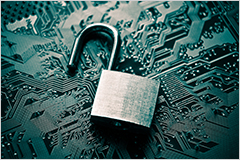EverSafe Scam Watch
Protecting Your Financial Health
Crooks Target Early Retirement Withdrawals
If you’re struggling financially in today’s downturn, your retirement nest egg may be a tempting source of cash. Maybe you really need it. Just know that scammers have their eyes on the same money.
In normal times, workers face significant obstacles to getting hold of funds they have set aside in vehicles such as Individual Retirement Accounts and 401(k) plans. Workers younger than age 59½ typically must pay a 10 percent penalty if they take the  money. Importantly, they may not put it back in their savings later, which permanently harms the nest egg. But as the economy plunged earlier this year, Congress offered a break: Lawmakers suspended the 10 percent penalty for 2020, and gave people three years to put the cash back into their accounts.
money. Importantly, they may not put it back in their savings later, which permanently harms the nest egg. But as the economy plunged earlier this year, Congress offered a break: Lawmakers suspended the 10 percent penalty for 2020, and gave people three years to put the cash back into their accounts.
Scammers are now trying to acquire your hard-earned savings. According to the Securities and Exchange Commission, “fraudsters and other bad actors are using these CARES Act benefits, which are intended for those facing economic hardship from COVID-19, to promote high-risk, high-fee investments and other inappropriate products and strategies.”
Regulators caution consumers to guard against this fraud. They offer the following warnings to keep your money safe if you wish to tap a retirement account and reinvest the savings this year:
You may be saddled with high fees. Stiff costs, which can really add up, are a sign that the new investment may not be in your best interest—and that others may be profiting excessively from your money.
You may lose access to the cash. Watch out for high fees to withdraw or gain access to your money. Ask if there are costs to taking out your cash.
Your investment advisor may not be legitimate. If you have any reason to question their credentials, be sure to verify that an individual is licensed to give advice or sell investments. [Click here for more guidance on how to check out an advisor.]
If the investment sounds too good to be true, it’s probably a scam. High-pressure sales pitches and promises of great returns are classic red flags for investment fraud.
Early withdrawals from your nest egg can have long-term consequences on your financial well-being. Congress temporarily eased the obstacles as a special remedy for those who have suffered financially due to COVID-19—not to encourage risky speculation. You can find questions and answers on the tax issues of these retirement withdrawals by clicking here.
Social Media Can Put Your Info at Risk
Social media has been booming during the pandemic. In a time of social distancing and quarantine, users of all ages have found online connections to provide a welcome social outlet.
But personal data you provide in social media profiles may be less secure than you think. In August, researchers discovered an online database with information from nearly 235 million users of Instagram, TikTok and YouTube. The data included  names, photos, genders, ages, contact information and statistics about these users’ followings on social media.
names, photos, genders, ages, contact information and statistics about these users’ followings on social media.
The information has since been removed. But the discovery is a reminder that crooks may try to combine bits and pieces of data to recreate your identity—and then commit crimes. Analysts say it highlights the problem of insecure personal data on social media, and a shadowy marketplace that trades in it.
When you’re online, be careful who you connect with and what information you share. Protecting your financial health requires vigilance. One answer is to enlist a service like EverSafe that stops exploiters in their tracks and will provide alerts of unusual financial activity in your name.
RISK FACTOR: Password Do’s and Don’ts
When it comes to safe management of passwords, there are a lot of opinions. But on one point, the experts agree: Scammers who figure out your password can do a lot of harm. After reviewing an array of expert advice, ScamWatch offers the following Do’s and Don’ts to keep your password secure:
Do make it long enough. Experts recommend at least eight or even 12 characters—or more—including capital and lower-case letters, numbers and symbols.
Do not reuse it. Sure, it’s easier to remember just one password than keeping track of a batch, but using the same password makes you more vulnerable to hacking if an account gets breached.
 Do change it if you suspect hacking. Come up with a totally new password if you have any suspicions that your information has been compromised or if you learn of a data breach that could potentially affect you.
Do change it if you suspect hacking. Come up with a totally new password if you have any suspicions that your information has been compromised or if you learn of a data breach that could potentially affect you.
Do not be obvious. Words in the dictionary, pet names, birthdays and a simple numerical series will not fool a sophisticated hacker.
Do consider using a passport manager. This is an app that will not only create but remember and supply the password when needed, which is a real convenience as our accounts multiply. You will have to remember a sole, master password.
Do not store passwords in a computer file. Similarly, don’t leave them exposed on paper where a burglar or acquaintance might spot them. The best practice is not to write down your passwords, period. If you want a reminder, it’s safer to leave yourself a clue—but not the exact password.
Do not change passwords just to change them. While you may have been advised to change passwords frequently, the thinking on this point has changed. The newer theory is that frequent changes will tempt people to pick weaker passwords, so it’s better to leave well enough alone, unless you have reason to change them. If you do change a password, make sure to truly reinvent it and not just modify a single numeral or letter.
Keeping Family Members Safe on Computers
 More than ever, kids need computers for their schoolwork, and more than ever they are using them for remote learning at home. Older family members too, including grandparents and even great grandparents, are online in larger numbers than ever before. Here are five tips to help keep family (and clients) safe when they go online for work or socializing. (courtesy of the Federal Trade Commission):
More than ever, kids need computers for their schoolwork, and more than ever they are using them for remote learning at home. Older family members too, including grandparents and even great grandparents, are online in larger numbers than ever before. Here are five tips to help keep family (and clients) safe when they go online for work or socializing. (courtesy of the Federal Trade Commission):
- Have a conversation. Make sure loved ones know that certain information should stay private, including all credit card information and other account numbers. Explain that scammers may try to make contact online or lure them to websites that will seek personal data or harm their computer.
- Keep software up to date. This includes browsers, which connect to the internet, apps and operating systems. Outdated software is more vulnerable to hackers, who continue to get more sophisticated. Try to set relatives’ software to update automatically (as well as your own).
- Don’t allow illegal streaming. Illegal video content, which may seem alluring, especially to children, has been linked to malicious software that steals log-in data and credit card information.
- Restrict downloading and file sharing. Yes, family members may need to download items for learning, as well as games and entertainment. But they must also understand that downloads can hide malicious software and should be handled with care.
- Remind them to safeguard passwords. Passwords should never be shared—even with friends, as tempting as that may be. Any request from a website to ‘confirm’ personal information or a password should be viewed with suspicion.
Bonus Tip: The webcam can be turned off
Children and other family members may need their webcams for Zoom and other remote learning applications or virtual family get togethers. But they don’t need these devices to be on all the time. Scammers have even been known to take over home webcams and eavesdrop on users. Why not make it harder for them?
If family members don’t need the webcam, remind them to cover it up or turn it off.



